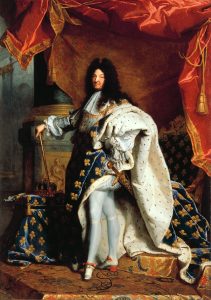18. Etymology clearly divulges the Greek origin of the ancient Latins, Romans and Sabines. The claim that Rome is simply a geographical denomination, that may be Etruscan, is unsubstantiated if not sheer nonsense.
19. In Greek, Ρώμη, Rome, means : power, force, health, fighting army and speed tactics.[18]
20. Ρώμη, Rome means : health and bodily strength, power, might and force in Greek, from the Homeric verb : 1) ρώομαι, meaning : “I move with speed or violence, I dart, rush, rush on, esp. of warriors.”[19]
21. Ρώμη also stems from the Greek passive verb: 2) ρώννυμι : to strengthen, make strong and mighty, and to put forth strength, have strength or might.[20]
22. The closest Latin equivalent verb is ruo, in Greek : ρέω meaning : “Ι flow, run, hasten.”
23. Of all the uses of Latin verbs, both active and passive, there is none that even comes close to the meaning and etymology of Ρώμη!
24. Further, the Romans, Latins and Sabines called themselves quiris (sing.) quiretes (pl.) which dictionaries translate into : citizen. But the Romans had a word for citizen : civis ; in Greek : πολίτης. The simple words quiris-quiretes derive from the Greek : κοῦρος, κούρητες meaning : young men of fighting age and therefore warriors, “young men, esp. young warriors,” Iliad 19. 193, 248.[21] Logically therefore, the Romans, Latins and Sabines originally called themselves first “warriors” and later “citizens.”
25. It is from the original military structure of the Roman army of κούρητες that the first government was fashioned into thirty curiae of 1000 men, each grouped into three tribes.
26. Just like the rest of the Greeks, Romans, Latins and Sabines were sea-faring and warring sailors who came to Italy, by sea, from Greece and Ionia. Like the rest of the Greeks, at their weddings, they chanted in chorus : Θαλάσσιος! (courageous warring sailor!) to the groom.
27. Of the seven hills of Rome, the Quirinalis collis, the hill of Mars, was where the Sabines settled. It was from that same hill that the Roman warriors of Romulus stole their wives. Quiris meant both spear and God of War for the Sabines. Their war god was Κοῦρος, in their original Greek language. Mars came to be much later in time.
28. According to Roman tradition, Romulus did not die. He ascended to heaven since he was the Quirinus (Kοῦρος), the God of War.
29. Consequently, it is a matter of fact that the Romans, the Latins and the Sabines identified themselves as Greeks. They spoke Greek and lived according to Greek social, military, cultural and religious ancestral traditions.
 30. Γένος, or those born of the same land, is one of the three words – the other two being : γλῶσσα and θρησκεία – used to identify the Greeks from foreign tribes and nations. The Latin word is exactly the same: gens. However, neither γένος nor gens is a linguistic equivalent of “race”! It was this very linguistic stipulation, gens, which the barbaric and primitive Teutons –
30. Γένος, or those born of the same land, is one of the three words – the other two being : γλῶσσα and θρησκεία – used to identify the Greeks from foreign tribes and nations. The Latin word is exactly the same: gens. However, neither γένος nor gens is a linguistic equivalent of “race”! It was this very linguistic stipulation, gens, which the barbaric and primitive Teutons –  whether Franks, Saxons, Vandals, Vikings, Gauts or other Germans – used to designate their races and their own nobility, as contrasted to the conquered and subdued West Romans, whom they reduced to slavery and called villains and serfs, right up to the French Revolution of 1789.
whether Franks, Saxons, Vandals, Vikings, Gauts or other Germans – used to designate their races and their own nobility, as contrasted to the conquered and subdued West Romans, whom they reduced to slavery and called villains and serfs, right up to the French Revolution of 1789.
31. Beginning at about the 11th century, and in sharp contrast to the serfs and villains of 1789, the ancestors of the revolutionary middle class of 1789 were those Romans who had escaped the slavery camps and forts of their Frankish lords and châtelains (castellani or fortress dwellers). They began building fortified towns at about the period that these same châtelains and castellani were, in turn, becoming independent from royal power. As of the 11th century, the kings and dukes started offering protection to these independent towns by installing their extortioner garnisons within their walls. Ancient maps mention “Frankish Quarters” where these garnisons quartered within the fortified citadels. The king or duke was paid handsomely for this protection, since the descendants of these franchised (set free and adopted Franks ; whence the expression : free and franc ) towns developed into wealthy middle class havens and markets. In due civil war course, this made the King of Frank-Reich (the Empire of the Franks) or France, pour les intimes, the most wealthy Mafioso in Europe, and France became a tremendous mafiosità of over twenty million serfs and villains. Ultimately, one can safely state that the French middle class and the serfs and villains of 1789 are direct descendants of imperial Romans, of Elder Rome as well as New Rome.
Notae :
18 ] H. G. Liddell and R. Scot, “Greek-English Lexicon,” look up “Pώμη”
[ 19 ] Ibid, look up “ρώομαι”
[ 20 ] Ibid, look up “ρώννυμι”